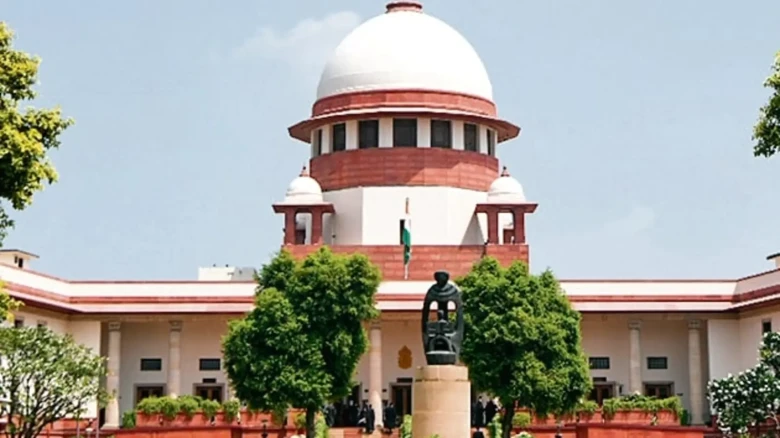According to a 3-2 majority decision by the Supreme Court bench, the EWS quota is neither discriminatory nor changes the fundamental framework of the constitution.
Digital Desk: In a significant decision, the Supreme Court confirmed the constitutionality of the 103rd Amendment, which grants members of the economically weaker sections (EWS) a 10% reserve in admissions and government jobs. The highest court ruled that the EWS quota regulation did not contradict the Constitution's fundamental principles.
According to a 3-2 majority decision by the Supreme Court bench, the EWS quota is neither discriminatory nor changes the fundamental framework of the constitution.
Affirmative action, which assists historically marginalised groups in Indian society including the Scheduled Caste and Scheduled Tribes (SC/STs) and Other Backward Classes, was disregarded by the quota (OBCs).
The Chief Justice stated at the outset that there are four distinct judgments on petitions against the EWS quota. The 103rd constitutional amendment, according to Justice Dinesh Maheshwari, who read the decision himself, does not violate the Constitution's fundamental principles.
According to Justice Bela M. Trivedi, the 103rd constitutional amendment cannot be invalidated because it is anti-discriminatory. They agreed, and Justice J. B. Pardiwala supported the constitutionality of the change. In dissent, Justice S Ravindra Bhat invalidated the constitutional amendment regarding the EWS quota. Justice Bhat's opinion was shared by Chief Justice Lalit.
"The foundation of this amendment is economic poverty and backwardness, and as a result, it cannot be constitutionally defended. However, it is not constitutionally permitted to exclude groups like Scheduled Caste/Scheduled Tribes and Other Backward Classes (OBC) "explained Justice Bhat.
The 103rd constitutional amendment, which the Center approved in January 2019 shortly after the ruling BJP lost the elections in Madhya Pradesh, Rajasthan, and Chhattisgarh, included the quota. It was immediately contested in front of the Supreme Court.
In petitions, it was questioned if the quota altered the "fundamental structure" of the constitution and how it could exceed the national ceiling on reserve of 50% imposed by the Supreme Court in 1992. Congress and the majority of opposition parties did not reject the measure. However, the Supreme Court heard up to 40 petitions challenging it, including one from the state of Tamil Nadu, which has some of the highest levels of racial discrimination in the nation.
The case was initially heard by three judges, who in 2019 forwarded it to a larger five-judge panel. The court reserved its judgment after a protracted six-and-a-half-day hearing in September.

Leave A Comment